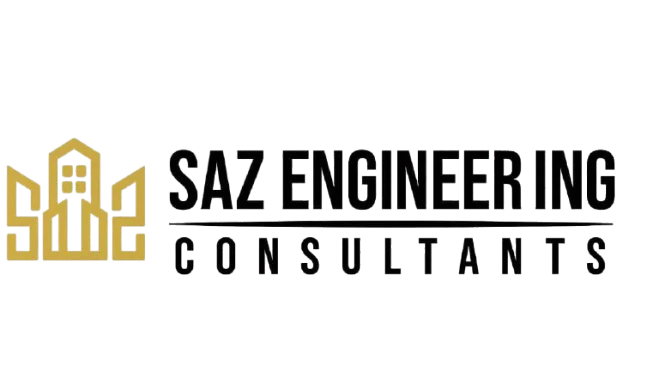In today’s digital age, businesses are increasingly looking for ways to optimize their operations, enhance productivity, and remain competitive in a rapidly evolving marketplace. This is where Remote Infrastructure Services (RIS) and Business Automation Solutions (BAS) come into play. These technologies are no longer just buzzwords, but integral components for businesses seeking to scale efficiently, reduce costs, and improve service delivery.
What Are Remote Infrastructure Services?
Remote Infrastructure Services encompass a wide range of IT management and support services delivered remotely to an organization’s IT infrastructure. These services typically include network management, server management, data storage, cloud services, cybersecurity, and system monitoring.
With remote infrastructure services, businesses can shift their IT management responsibilities to a trusted third-party provider, which can deliver these services without the need for on-site staff. This provides companies with numerous advantages, including reduced operational costs, increased uptime, and access to specialized expertise that would otherwise be hard to maintain in-house.
Some common examples of Remote Infrastructure Services include:
- Cloud Hosting and Management: Cloud computing offers businesses the flexibility to scale their infrastructure quickly and manage resources based on demand. Service providers can manage cloud environments remotely, ensuring that businesses get the most out of their cloud investments.
- Network and Server Monitoring: A critical aspect of any infrastructure is ensuring network connectivity and server health. Remote monitoring tools can continuously check for potential failures and performance issues, alerting businesses to problems before they escalate.
- Security Management: Security threats are an ever-present concern for businesses, and managing security protocols can be challenging. Remote Infrastructure Service providers can deliver comprehensive security management, ensuring that firewalls, intrusion detection systems, and other defenses are always up-to-date and functioning properly.
- Backup and Disaster Recovery: Remote infrastructure services also include data backup and disaster recovery solutions, ensuring that businesses can recover their data and continue operations in the event of a failure.
Benefits of Remote Infrastructure Services
- Cost Efficiency: One of the most immediate advantages of remote infrastructure services is the significant reduction in capital expenditures (CapEx). Rather than purchasing, maintaining, and upgrading hardware, businesses can outsource these services to a managed provider, paying only for the resources they need.
- 24/7 Support: Many remote infrastructure services are available 24/7, ensuring that technical support is always available when issues arise. This minimizes downtime and ensures that IT systems are constantly operational.
- Scalability: With remote infrastructure services, businesses can scale their IT resources up or down based on their needs. This scalability ensures that companies can meet changing demands without worrying about over-investing in IT infrastructure.
- Access to Expertise: Partnering with an external service provider means businesses can tap into a pool of expertise that may be too expensive or impractical to hire in-house. From security specialists to cloud architects, remote infrastructure providers bring specialized knowledge to the table.
What Are Business Automation Solutions?
Business Automation Solutions refer to the technologies, tools, and platforms that automate business processes and workflows. These solutions are designed to reduce manual intervention, improve accuracy, increase productivity, and streamline operations.
From automating routine administrative tasks to sophisticated enterprise resource planning (ERP) systems, business automation is transforming how organizations operate. Business automation can be implemented across a wide range of industries, from manufacturing to healthcare, to improve operational efficiency and drive growth.
Some examples of business automation solutions include:
- Customer Relationship Management (CRM) Automation: CRM automation tools can streamline customer interactions, manage leads, track sales activities, and automate follow-up tasks. This allows sales and marketing teams to focus on high-value tasks while ensuring that routine processes are handled automatically.
- Human Resource Automation: HR departments can use automation tools for onboarding, payroll management, benefits administration, and employee records. Automated workflows reduce the burden on HR staff and ensure compliance with regulations.
- Invoice and Payment Processing: Manual invoice and payment processing can be time-consuming and error-prone. Automation solutions can streamline the invoicing process, allowing businesses to generate and send invoices automatically while ensuring payments are tracked and recorded accurately.
- Supply Chain and Inventory Management: Automation can enhance supply chain visibility and streamline inventory management. Automated systems can track inventory levels in real-time, reorder stock when necessary, and optimize shipping and logistics.
Benefits of Business Automation Solutions
- Increased Efficiency: By automating repetitive tasks, businesses can free up employees to focus on higher-value activities. Automation speeds up processes, reduces human error, and allows organizations to operate more efficiently.
- Cost Savings: Automation leads to significant cost savings by reducing the need for manual labor and improving resource allocation. Businesses can achieve higher output with fewer resources, ultimately reducing operational costs.
- Enhanced Accuracy: Human errors can be costly, especially in areas like data entry and reporting. Automation reduces the likelihood of errors, ensuring that tasks are completed with greater accuracy and consistency.
- Improved Customer Experience: Business automation enables companies to respond to customer inquiries faster, personalize marketing efforts, and offer a more seamless experience. Automated systems can provide real-time responses to customer queries, improving overall customer satisfaction.
- Better Decision-Making: Automation tools often provide real-time analytics and reporting, giving businesses the data they need to make informed decisions. These insights help organizations identify trends, optimize processes, and adapt strategies accordingly.
How Remote Infrastructure Services and Business Automation Solutions Work Together
While both remote infrastructure services and business automation solutions offer distinct benefits, they also complement each other in powerful ways. Let’s explore how combining these two can drive business transformation.
- Seamless Integration: A business automation solution needs a solid IT infrastructure to function efficiently. Remote infrastructure services ensure that the backend systems, such as cloud services, servers, and networks, are stable, secure, and scalable. By combining these two services, businesses can ensure that their automation tools have the necessary support to perform optimally.
- Cloud-Enabled Automation: With remote infrastructure services often utilizing cloud solutions, automation tools can be deployed and scaled more effectively. Cloud-based platforms allow businesses to implement automation solutions without worrying about maintaining the underlying infrastructure, which is taken care of remotely.
- Continuous Monitoring and Optimization: Automation systems need to be monitored continuously to ensure that they are performing as expected. Remote infrastructure services provide real-time monitoring, alerting businesses to any issues that may affect automation workflows. Additionally, these services can optimize infrastructure resources to improve automation performance.
- Security and Compliance: Both remote infrastructure services and business automation solutions require a robust security framework. Remote infrastructure providers manage cybersecurity, ensuring that sensitive data is protected, while business automation tools can automate compliance checks and audits, reducing the risk of legal issues.
Conclusion
The digital transformation journey for businesses is complex, but leveraging remote infrastructure services and business automation solutions can help simplify it. By offloading IT management responsibilities to trusted service providers, businesses can focus on their core activities while benefiting from reduced costs, increased efficiency, and enhanced security. Meanwhile, business automation solutions take repetitive, time-consuming tasks off employees’ hands, enabling them to focus on higher-value activities that drive growth.
As businesses increasingly adopt these technologies, it’s clear that remote infrastructure services and business automation solutions are no longer optional—they are essential tools for staying competitive in today’s fast-paced and ever-changing business landscape. With the right strategy, businesses can harness the power of both to optimize operations, deliver better customer experiences, and pave the way for future growth.
Click here to read more.















Leave a Reply